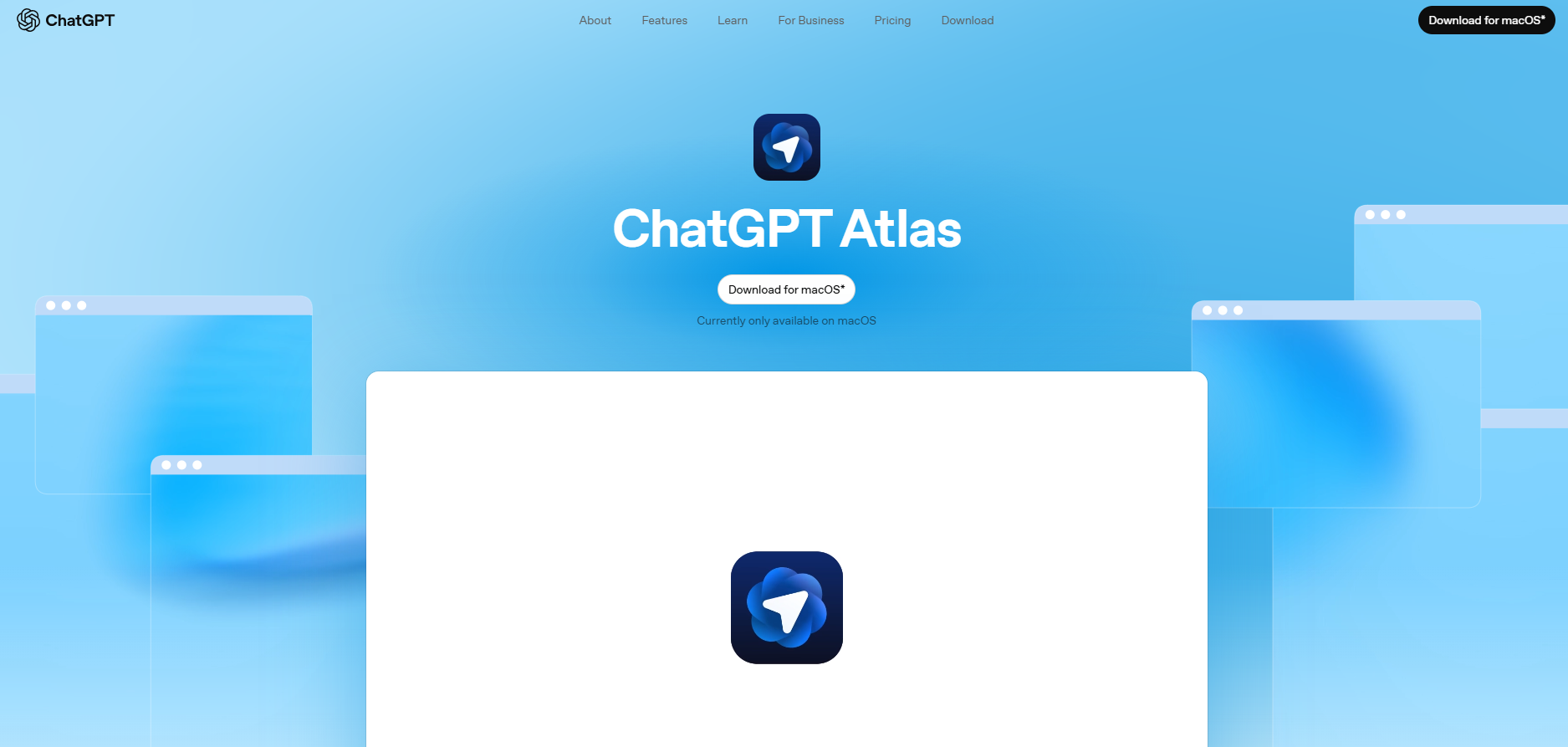
ChatGPT Atlas
On October 21, OpenAI launched its long-awaited browser: ChatGPT Atlas. The new browser is a direct competitor to Chrome, with new AI capabilities that blend a traditional web-browsing experience with the customization, intuitiveness, and automation that hundreds of millions of people have become accustomed to in ChatGPT.
We think this browser represents a larger shift towards AI-enhanced search experiences, so our Synapse Labs team downloaded the browser and began testing. At first glance, Atlas appears to operate much like a traditional browser. Upon launch, you can type into the search bar, open tabs, and visit websites. However, there are a few key differences:
- The search bar operates like Chrome’s, but it’s infused with ChatGPT. If the model determines you’re seeking a specific website, it’ll bring you there. If it determines you’re asking a question, it opens a ChatGPT dialogue.
- On all sites, the user can open a sidebar dialogue with ChatGPT to ask questions about the content shown in the main window. You can ask for a summary, additional context, or get more information about something shown on screen. ChatGPT has a full view of your screen’s content (unless you opt out).
- The sidebar ChatGPT assistant can take over your browsing session. You can visit a shopping page and ask ChatGPT to find a highly reviewed product under a certain price, and it’ll add options to your cart.
Something that stood out to us as we tested the new browser is that it launched for MacOS only. While not uncommon for new desktop apps to launch for one operating system first, it was interesting that the tool launched in the Apple environment first, given OpenAI’s long and close partnership with Microsoft.
According to our research, a Windows version is coming soon. While OpenAI hasn’t announced a PC launch date, their ChatGPT desktop app, which launched on MacOS in May 2024, was launched on PC 6 months later. We may be in store for a similar timeline here.
We’re excited to continue testing Atlas, but we’re also closely monitoring how this launch impacts user adoption of AI. We expect that, especially in the early days, only existing AI adopters will use Atlas. But there could come a day in the not so distant future where this browser becomes the default for many new users.
If the experience is intuitive and adds value, it’s only a matter of time before this type of experience becomes the new norm. As an agency, we’re very closely watching for the moment when AI search becomes the mainstream option, leaving traditional search experiences behind.
In the coming weeks, our team will continue testing Atlas and will share more insights!
Interested in learning more about how AI engines like ChatGPT are impacting the search experience? Download our eBook on the new world of AI search today!

